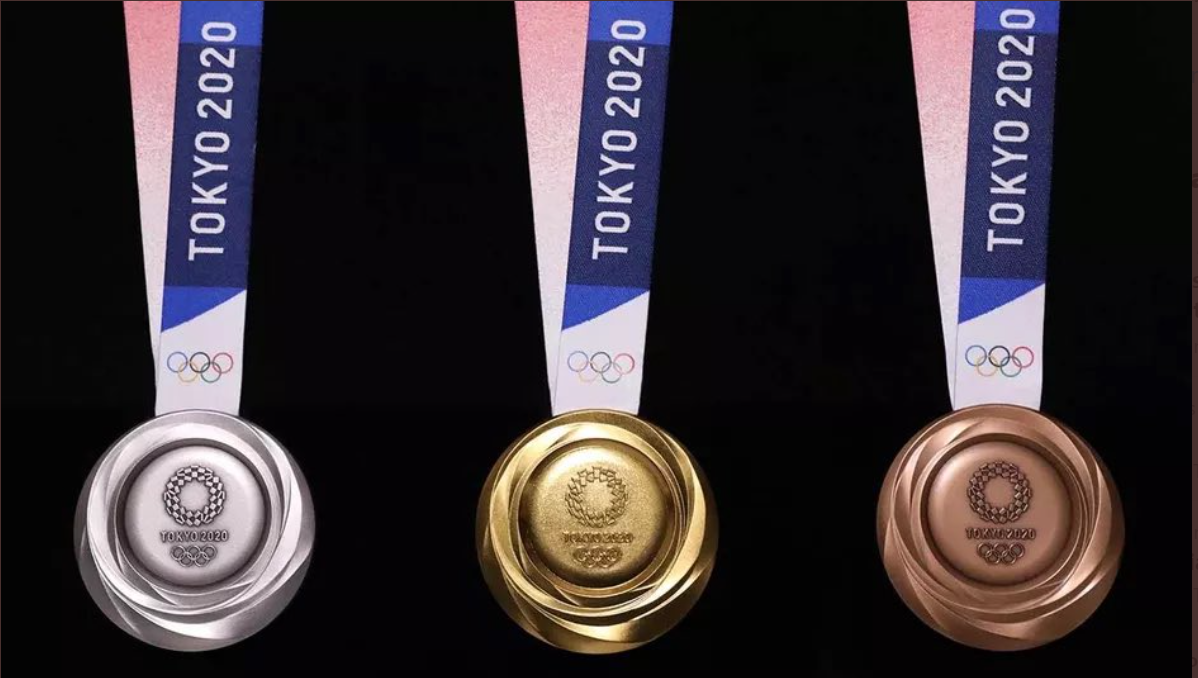

Question an athlete what it means to have an Olympic medal adorning their neck. And most would be lost for words. Well, certainly so, as they are what ‘dreams’ are made of! Indeed, years of practice, putting bodies on the line, and sacrificing more than one can imagine, athletes give it their all to find these pearls in the oyster! The Paris Olympics Games would feature a similar tussle. But as fans, do you imagine what happens to these scintillating accolades afterward?
Watch What’s Trending Now!
Bummer alert: Not all medals have a dreamy ending, placed gracefully in display showcases. Some find their way down the chain, forced by financial impediments or for the noble cause of charity!
ADVERTISEMENT
Olympians are allowed to sell their Olympic medals
To answer the question, yes Olympic medals can be sold. John Millensted, head of the Coins & Medals department at Bonhams auction house remarked, “The market is strong for Olympic medals when they come up for sale but it depends on a number of factors, such as the event.” It mostly happens when the awardee has passed away and the next generation sells them, but the opposite is also possible.
For example, back in 1984, the American springboard diver Greg Louganis clinched a double gold at the LA Olympics, one he had to eventually part with. Apparently, by 2012, his financial condition had weakened to the extent that an Olympic memorabilia auctioneer claimed, “He wanted $100,000 for each medal.” While the amount seemed too grandiose then, in contemporary times, it is an achievable number.
Top Stories
Forced to Leave FOX, Cowboys Legend Troy Aikman Says ESPN Is Like ‘U.S. Government’ & Clearly Distinguishes the Two Networks

$250M Michigan Booster Reveals More to Sherrone Moore Saga After Paige Shiver Confirms Police Visit

NFL Files Motion to Dismiss Former Texans Board Member Cary McNair’s “Legally Baseless” Lawsuit

Rafael Nadal Faces New Injury Blow Only a Year After His Emotional Tennis Exit

T.J. Watt’s Wife Shares Emotional Update on Steelers LB Following Worrying Health Scare

Heisman Voter Flags Julian Sayin Disrespect as Fernando Mendoza and Diego Pavia Announce True Intentions

It’s tougher for Olympians, who have short-lived competitive careers. And the medals being their prized possessions help them raise a sum. But, what are the actual costs of the medals? Are they exorbitantly expensive or empty pomp?
ADVERTISEMENT
How much is the worth of an Olympic medal
While the overwhelming sentimental value of Olympic medals can hardly be articulated in words, their actual worth is interestingly not as whopping as one would imagine. As per nine.com, the gold medal at the Paris Olympics weighs 529 grams in total and is made of 92.5 percent silver and just 1.34 percent gold. Thus, each glistening gold contains just grams of the said metal, while also 6.16 percent copper.
ADVERTISEMENT

ADVERTISEMENT
This mix would slate the gold medal’s cost around $1400. Whereas, had it been solely made of gold, it would cost approximately, $61,000. Well, was it always a mixed lot? The answer is no. 1912, the Stockholm Olympics Games featured the last pure bar allotted to the athletes.
Coming to the other colored rewards, the 525-gram silver medal would feature a maximum of 92.5 percent silver, while the rest would be copper. As for the 455-gram Paris bronze, it’s composed of 97 percent copper, 2.5 percent zinc, and 0.5 percent tin. Thus, the silver award’s estimated cost could be around $700, while the bronze can be worth $10. Nonetheless, there have been some brave hearts who have bid farewell to their Olympic rewards.
ADVERTISEMENT
Instances when athletes sold or donated their Olympic medals
Rio Olympics winner Piotr Malachowski offered his silver in discus throw to be put up in the sale. And the funds were used for treating a boy’s eye cancer. For another noble cause, Ukrainian boxer Wladimir Klitschko donated his Atlanta Games’ super heavyweight gold for $1 million in 2012. And he contributed the funds for impoverished children in his country to have a better future. Even USA’s swimmer Anthoy Erwin sold his Sydney Olympics gold for $17,101 on Ebay, to divert the funds for the 2004 Indonesian tsunami relief aid.
Another occurred with Mark Wells, the one on the USA hockey team in 1980, that defeated the Soviet Union. But in a turn of fate, the athlete retired early, at just 25, after which he suffered an injury and discovered a rare degenerative spinal disease. “It killed me to sell the medal . . . [but] I was going to lose my home. I needed to sell it to have surgery and to live.” Helplessly, he sold his gold medal to a private collector for $40,000. Mark Pavelich, one of Wells’ contemporaries on the team too sold his medal for $2,62,900 in 2014. The reason was to cover his daughter’s future expenses.
While the bid to rope in these medals will continue at the Paris Olympics, it remains true that some by will, some by circumstances, but athletes have sold their Olympics medals previously.
ADVERTISEMENT
ADVERTISEMENT
ADVERTISEMENT
ADVERTISEMENT

